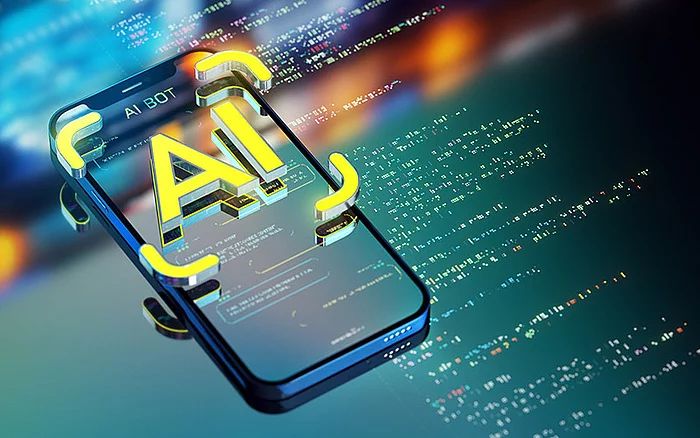Momentum is a precious resource for the Intellectual Property (IP) system; hard to come by, easily squandered and massively influential. Seizing those gains already made and building upon them can take years off otherwise labored projects.
We examine possible opportunities for such progress from across the IP world. Whether it relates to patenting in the European Union, trademarking for artificial intelligence (AI) tools or the fight against infringing goods, precedent is crucial.
A patent court's rocky road to Dublin
The Unified Patent Court (UPC) may soon be welcoming its 18th member as Ireland stands on the cusp of joining the international body. Yet, what may be more remarkable than the country's possible ratification of the Agreement on a Unified Patent Court (UPCA) is the fact that one of the most pro-EU nations has not done so already.
From the first signings of the UPCA in February 2013 to the opening of the Court in June 2023, a decade of national debates, disagreements and disavowals played out in slow motion across the continent. For a time, a drawn-out back-and-forth process through the German judicial and legislative branches cast the whole endeavor into doubt, while the United Kingdom's withdrawal as part of Brexit not only removed a Central Division location from the project but also one of the top patent filing destinations in Europe.
In spite of all the hurdles and setbacks, the UPC is now operational and ready to include its first English-speaking, entirely common-law member. (For the trivia hounds out there, the UPCA is in force in Malta, which has English as one of its official languages, but the island nation has a mixed judicial tradition.)

Currently, the Commercial Court – a division of the High Court – is empowered to hear patent cases in Ireland. Investing that same authority in the UPC is not only a matter of diplomacy but requires a democratic remit to complete.
However, for this to come to pass, Article 29 of the Constitution of Ireland would have to be amended to allow for the transfer of jurisdiction to the UPC regarding patent litigation – something that can only occur following a referendum. After a protracted delay, the date for that referendum is in sight and will fall sometime in June this year to coincide with local and European elections.
For all its complexity, this process is not wholly without example. In 2014, Denmark held a referendum on the transfer of patent sovereignty, with the public giving their assent. Unlike the Irish situation, the vote was not to update the constitution but to comply with it in the absence of a five-sixths majority in the Danish Parliament.
The UPC's winding voyage has brought it to a country that is no stranger to referenda, as Ireland has passed 30 and rejected 10 since 1937. This fact, coupled with the country's strongly positive EU sentiments, suggests a "Yes" vote to be the likely outcome this June.
A green light from the Emerald Isle could galvanize additional ratifications from the remaining six signatories, Cyprus, the Czech Republic, Greece, Hungary, Romania and Slovakia, and prove to be the good fortune at the end of a very long rainbow.
When success turns sour for trademarks
Then again, not all lengthy journeys arrive at their intended destination; just ask ChatGTP.
From the moment the revolutionary large language model exploded onto the internet in November 2022, it has been the first word in generative AI. However, when it comes to registering trademarks in its jurisdiction, the United States Patent and Trademark Office (USPTO) has the final say. And as regards a trademark for the term "GPT," that word is no.
Per a final rejection notice issued on February 6, the Office views "GPT" as merely descriptive because it immediately conveys information on the nature of the received service, that is, human-like text produced in response to natural-language input, rather than its commercial origin as coming from developer OpenAI.
OpenAI appealed the first rejection from October 31 last year, arguing that the majority of users would not understand what "GPT," short for "generative pre-trained transformer," actually means. Be that as it may, the examiner was not convinced of the relevance, citing "extensive and pervasive use" of the term by the AI industry in a public-facing capacity. "[T]he fact that consumers may not know the underlying words of the acronym does not alter the fact that relevant purchasers are adapted to recognizing that the term "GPT" is commonly used in connection with software to identify a particular type of software that features [...] AI ask and answer technology."

Currently, the Commercial Court – a division of the High Court – is empowered to hear patent cases in Ireland. Investing that same authority in the UPC is not only a matter of diplomacy but requires a democratic remit to complete.
So, it seems that ChatGPT has encountered a problem that commonly affects completely original products and services: genericization. Prior to November 2022, the initialism "GPT" held purely technical significance – and only to researchers and developers active in the field of AI. Since the launch of ChatGPT, however, it has taken root in the public consciousness as a type of computer tool anyone can use without specialist knowledge.
In 1990, a prominent Japanese company faced a similar predicament and took an active stance against the use of its trademarks to describe video game products generally. The result was the notable "There's no such thing as a Nintendo" campaign. Had OpenAI taken a leaf out of Mario's playbook and discouraged inappropriate uses of its marks or promoted the use of an alternative neologism, the USPTO might not have reached the conclusion it did.
The key takeaway is that instead of relying on AI-generated advice on how to avoid genericization, one should speak to a qualified trademark attorney.
To counter the counterfeits
Finally, this month saw the 13th Regional Intellectual Property Crime Conference for the Middle East and North Africa (MENA) take place in Dubai. Reflecting both the local impact and the significance to broader matters of law and order, a number of bodies in the United Arab Emirates came together to host the conference from February 20-21: the Emirates Intellectual Property Association (EIPA), the Ministry of Economy, the Ministry of Interior, Dubai Customs, Dubai Police General Command and the Brand Owners Council.
Of course, IP crime frequently crosses borders, oceans and continents, which was why the event was held in cooperation with the International Criminal Police Organization (Interpol). As a hub for commerce in the MENA region and a gateway to the EU, Dubai is deeply aware of economic harm caused by counterfeiting – an issue highlighted by Maj. Gen. Dr. Abdul Quddus Al Obaidly on the first day.
In his capacity as Assistant Commander-in-Chief for Quality and Excellence and Head of the EIPA at Dubai Police, Maj. Gen. Dr. Al Obaidly commented on the severity of the counterfeiting problem. According to the senior officer, the $28 billion USD generated by drug trafficking in the EU over recent years was far surpassed by the $43 billion USD lost to IP owners in the same period.

As with any illicit business, counterfeiting is difficult to measure simply because it aims to go undetected. Nevertheless, a U.S. government report from 2020 described counterfeiting as "the largest criminal enterprise in the world," worth an estimated $1.7-4.5 trillion USD annually.
"Crimes related to Intellectual Property are becoming more dangerous than drug-related crimes. There needs to be global legislation and amendments on laws to face IP crimes, now we are in the metaverse and AI era," he remarked, speaking to the pervasiveness of fake goods and the health risks they pose.
Meanwhile, Ahmed Mahboob Musabih, Director General of Dubai Customs, reflected on the flow of fake goods entering the UAE itself, reporting that his agency had dealt with "around 333 Intellectual Property disputes that involved 15 million counterfeit items, with a value of 73.4 million Dh last year."
True to its theme of "Unlocking the future," the conference did not focus solely on the damage caused and explored means of countering the threat to human and economic health. In addition to international harmonization and shared anti-counterfeiting practices, other suggested solutions included cross-agency information exchange and a better understanding and use of emergent technologies.
Enforcement may be the least glamorous aspect of IP protection, but without it, all efforts made to secure exclusive rights become immaterial. Fortunately, the will exists to strengthen existing regimes, and disruptive technologies may prove to be the impetus needed to crack down on global counterfeiting.
The content of this article is intended to provide a general guide to the subject matter. Specialist advice should be sought about your specific circumstances.


